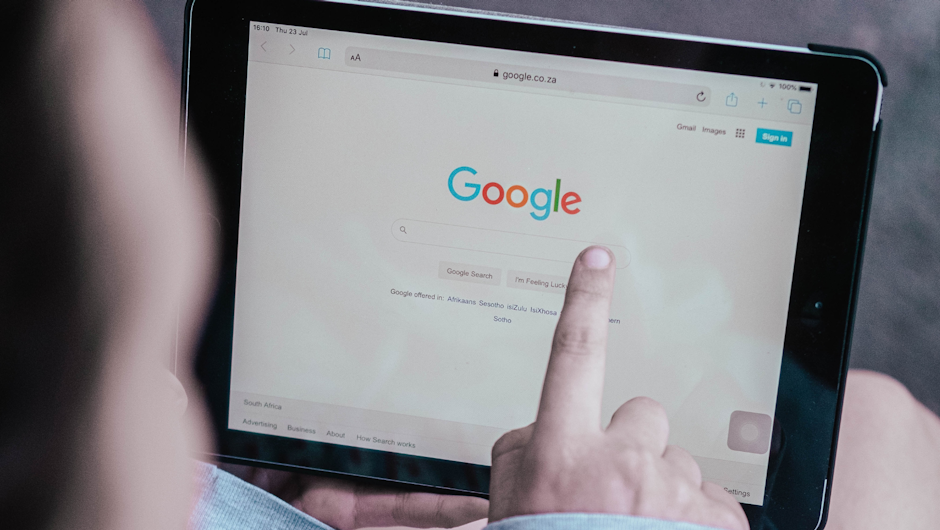Let’s calm down - when it comes to search, Google is still King
When it comes to the search engine market, Google has been top of the league for over 20 years

The search giant is the go-to for information-seeking consumers, and there’s a reason it’s the most visited website in the world. Consumers trust Google to give the right answers.
Other search engines, like Ask Jeeves, have come and gone, while the likes of DuckDuckGo have even tried to change the way that people search, by not using Cookies or collecting people’s personal information. But, if we look at the evidence, they haven’t really been able to compete with Google. Google still has over 90% of the market share. So, what’s so special about this new wave of platforms that are creating such a buzz?
What’s new in the search engine market?
Over the past few years, we’ve seen an array of newer platforms enter the tech market.
There’s Gen Z’s favorite, TikTok, and AI platforms like ChatGPT, which rose in popularity in the tech field, accumulating over 100 million users. They’ve both had incredibly quick successes in their own rights, ChatGPT acquired over one million users in just five days, and TikTok’s global monthly users grew by 1,157% since January 2018. But even still, they’re not exactly dominating the search market.
They’re performing very well with certain groups of consumers, and for certain purposes, but that’s their fundamental limitation - because Google caters to everyone and for every purpose.
The list continues: Meta’s new social media platform, Threads, and Google’s newly released AI tool, Bard (to compete with ChatGPT) is live but still in its experiment stage.
That’s a fast stream of new tech, but is the ever-growing range of platforms becoming too overwhelming for users to bother engaging with?
Google doesn’t have a niche
The main issue with these platforms, is that they’re too niche to fully compete with Google. They do what they do well, but don’t do everything that Google does. There’s a reason that Google is still the most visited site in the world, with 89.3 billion monthly visits.
TikTok gives personable and easily-digestible content. It’s popular for people looking for opinion-based content that doesn’t require industry expertize or accreditation, like travel tips or fashion trends. But it’s massively limited in the fact that the content is only in video format. Its user base is also predominantly those aged between 18-34, and the content is representative of this.
Artificial intelligence (AI) platforms can also give customized search engine experiences, but AI hasn’t got, and can never offer personal experience and authenticity. As an AI language model, ChatGPT doesn’t have access to real-time data, so the results can also be outdated. It even states its limitations for users – “May occasionally generate incorrect information”, which is anything but encouraging.
On the other side of the coin, Google can find searchers pretty much anything, personalized to that search. The ultra-sophisticated algorithm is able to provide users with more than what is asked for, showing related questions that others have asked, suggesting search filters and pulling content into the format it thinks best suits. Their search results aren’t limited to just external sites with added built-in capabilities like flight finder, video search and Google shopping all adding value to the search experience.
Even if users prefer to use TikTok for travel inspiration, they’re still much more likely to stick to Google when it comes to researching more complex queries like visa laws and currency queries. Research shows that, out of all search engines, people still trust Google the most, because they know the content is coming from a reliable and trusted source.
Comparing the results
To test our theory, true searched the same query across three platforms to compare the results: TikTok, ChatGPT and Google - ‘Best hotels in London’.
TikTok pulls through video highlights, mostly from influencers, reviewing different hotels in the city. It’s great for finding inspiration and honest reviews, but users still need to then access a search engine, or visit their site to book a room.
ChatGPT, on the other hand, for the same search lists the ten most prestigious hotels in London, which (probably) doesn’t take into account the average consumer’s budget. It even caveats that its data might not be recent or accurate.
Google uses its in-house accommodation tool to list hotels in London. Without even leaving the search results, userscan filter by date, price and number of guests, and the map feature allows you to explore and compare options.
The devil is in the detail. Google wins hands down.
Is the end to Google’s reign nigh?
Will these emerging technologies replace Google? It’s unlikely. We’ve already seen the rise and fall of voice search and Vine, the short-form video-sharing platform, and the future of X (Twitter) is looking dubious after a radical rebrand.
It’s difficult to fathom a platform that can do it all and do it better than Google. Whilst these new technologies are taking a smaller piece of the pie, Google still wears the crown and will be hard to budge off the top spot.
Fundamentally, we humans are lazy. Changing a behavior, and now a widely used anthimeria, for generations of users will be very hard to break. So when in doubt,(for the foreseeable future anyway) just Google it.

